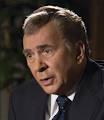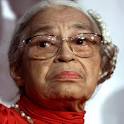FRANK LANGELLA’S BOOK & ROSA PARKS
I finished a book: Dropped names: Famous men and women as I knew them by the actor Frank Langella. Here are a few excerpts I thought worth repeating.
Bette Davis was asked what it takes to succeed in the acting profession. She always answered "the
 courage to be hated." I've often said that a lawyer, especially a trial lawyer, is very unlikely to be a great lawyer if they are worried about being liked and put that as a priority. Their role is to represent their clients to the very best of their skill come what may. In an honest and ethical manner, but irrespective of whether they may be disliked or even hated. The clients interests always come first.
courage to be hated." I've often said that a lawyer, especially a trial lawyer, is very unlikely to be a great lawyer if they are worried about being liked and put that as a priority. Their role is to represent their clients to the very best of their skill come what may. In an honest and ethical manner, but irrespective of whether they may be disliked or even hated. The clients interests always come first.
Speaking of not being liked, Langella writes that the the actor Rex Harrison was not well liked. A
story is told that on his 70th birthday someone offered to give him a party and invite all of his friends. The man supposedly said:" I'll even hire a telephone booth for the party."
Coral Browne was an actress. Story is that someone once called and asked to speak to her. Her friend who answered the phone supposedly said "I'm so sorry. She can't come to the phone. She's gone to
confession and she will be there very long time."
I related to Langella's report that some one once said, early in his career, that the director Mike
Nichols was a success. The other person responded: "He's not a success." The first person was surprised and said: "What do you mean? He has had a half dozen Tony's and an Oscar. How can you say he's not a
success?" The answer was "Because he hasn't had a failure yet." There is much wisdom in that answer. In my professional carear I've seen trial lawyers who have had some success in court become increasingly arrogant until they suffer a serious defeat in court. The experience, for most, changes them into human beings who can relate to judges and jurors. Failure is a wonderful, even if painful, learning experience.
When I read Langella's comment about the famous acting coach Stella Adler I completely agreed with it as it relates to jury trials. She said: "You can be as phony as you like in life, but never on the stage." We all are wired to detect insincerity. When you have twelve people in a jury it doesn't take long for them to know when a lawyer being honest and genuine or not. The first rule of winning jury cases is to tell the truth and be your real self.
The author writes about Elizabeth Taylor. He says: "She could be slowed down,thrown off course for a bit, even brought to tears, but she could not be bested in the arena where it really counts – the courage of one's convictions." He writes: "She had an arrogance that would not take no for an answer even if the word were spoken directly into her face. She heard it only as: "Not at the moment."
The book is somewhat frivolous but entertaining.
Another book I just finished was The Power of Habit by Charles Duhigg. What I found interesting is what he wrote about the start of the civil rights movement in Alabama. He wrote: On Thursday, December 1, 1955 in Montgomery Alabama Rosa Parks had just finished a long day at her job at the
 department store where she worked as a seamstress. The bus was crowded and by law the first four rows were reserved for white passengers. The area in the back, reserved for blacks, was already full so Rosa set right behind the white section.
department store where she worked as a seamstress. The bus was crowded and by law the first four rows were reserved for white passengers. The area in the back, reserved for blacks, was already full so Rosa set right behind the white section.
As the bus continued on its route more people boarded and soon all the white rows were filled and white passengers were standing holding on. The bus driver, James Blake, shouted at the black passengers to give up their seats for the standing whites, but no one moved. Blake pulled over to a bus stop and walked back to the black section and said: “you’all a better make it light on yourselves and let me have those seats." Three black passengers got up and moved to the rear.
Parks stay put. She told the driver she wasn't in the white section and besides there was only one white rider standing. The driver said that" if you don't stand up I'm going to call police and have you arrested" Parks said "You may do that" so the driver left and found to policeman who placed her under arrest.
Over the next year, Montgomery's black population would rise up and financially boycott the city buses and end their strike only when the law was removed from the books. The boycott would cripple the bus line, drew tens of thousands of protesters and introduce a young leader named Martin
Luther King Junior. It sparked a movement that spread and eventually ended up in Congress making Parks a hero and a recipient of the Presidential Medal. She was a shining example of how a single act of defiance can change the world.
